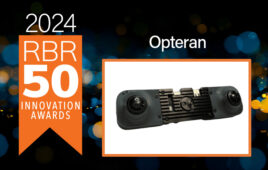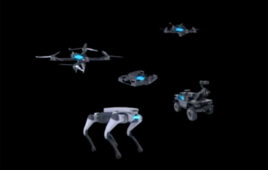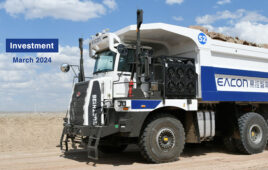|
Listen to this article
|

Joby Aviation says it hopes to eventually use Xwing technology for fully autonomous operations. | Source: Joby Aviation
Joby Aviation Inc. this week announced that it is acquiring the autonomy division of Xwing Inc. The acquisition will cover all of Xwing’s existing automation and autonomy technology activities and was paid for with Joby shares. The companies did not disclose the terms of the deal.
Founded in 2016, Xwing has operated autonomous aircraft since 2020 using its Superpilot software. Developed in-house, the software enables safe, uncrewed operations, supervised from the ground, said the San Francisco-based company. Xwing claimed it offers “fully autonomous gate-to-gate flight technology.”
The company said it has completed 250 fully autonomous flights and more than 500 auto-landings to date. Last year, it received an official project designation for the certification of a large unmanned aerial system (UAS) from the Federal Aviation Administration (FAA).
“Xwing’s goal of connecting communities with clean and affordable autonomous flight aligns closely with Joby’s long-term vision,” stated Maxime Gariel, co-founder, president, and chief technical officer of Xwing.
“For the past seven years, our team has broken barriers to advance aviation autonomy,” she added. “Now, as we join forces with the leading electric air-taxi developer, I can’t imagine a better home for the Xwing team to realize our shared vision.”
Pilot assist to come before fully autonomous flights
Joby Aviation is developing electric air taxis for commercial passenger services. The Santa Cruz, Calif.-based company said its acquisition of Xwing will help it be a leader in aviation autonomy and will build on its 2021 acquisition of high-performance radar developer Inras GmbH.
Founded in 2009, Joby said that Xwing’s expertise in perception technology, systems integration, and certification will benefit both near-term piloted operations as well as fully autonomous operations sometime in the future.
“The aircraft we are certifying will have a fully-qualified pilot on board, but we recognize that a future generation of autonomous aircraft will play an important part in unlocking our vision of making clean and affordable aerial mobility as accessible as possible,” said JoeBen Bevirt, founder and CEO of Joby.
“The exceptionally talented Xwing team has not only made unparalleled progress on the development and certification of vision systems, sensor fusion, and decision-making autonomous technologies, but they’ve also successfully demonstrated the real-life application of their technology, flying hundreds of fully autonomous flights in the national airspace,” he said.
Xwing tech to enable Joby to deliver on DoD contracts
Joby added that Xwing’s staff and technology will help accelerate its execution of existing contract deliverables with the U.S. Department of Defense (DoD) and expand the potential for more contracts.
Xwing’s engineers, researchers, and technologists will help Joby focus on its automation and autonomy roadmap. They will also offer increased opportunities to partner with the DoD on technology development, said Joby.
Xwing’s autonomous flights were completed using a Cessna 208B Grand Caravan aircraft. They allowed the team to focus on areas such as vision system processing, detect-and-avoid algorithms, decision making, and ground control stations, said Joby. The aircraft also supported remote operations, the integration of artificial intelligence and machine learning, and mission management (including trajectory planning and real-time updates.
The U.S. Air Force gave Xwing a Military Flight Release earlier this year. The company’s aircraft participated in the Air Force’s Agile Flag 24-1 Joint Force exercise.
During this exercise, Xwing’s aircraft completed daily flights, covering around 2,800 miles and landing at eight public and military airports. The company also demonstrated its ability to integrate autonomous aircrafts into the national airspace system.
“Autonomous systems are increasingly prolific in the private sector and bring potentially game-changing advantages to the Air Force as well,” said Col. Elliott Leigh, AFWERX director and chief commercialization officer for the Department of the Air Force. “We created Autonomy Prime to keep up with this shift and to stay engaged as a partner while this technology evolves, so that we can adapt and evolve along with the private sector, maintaining our competitive advantage.”






Tell Us What You Think!